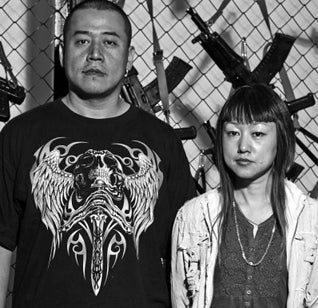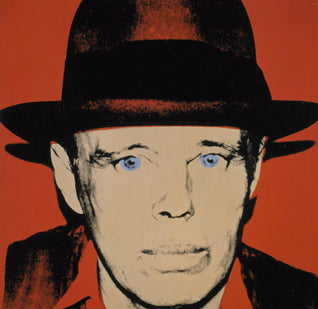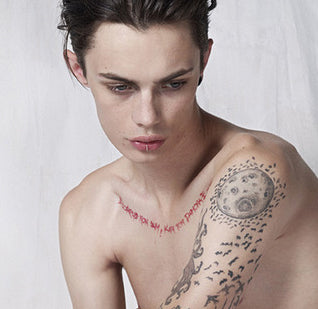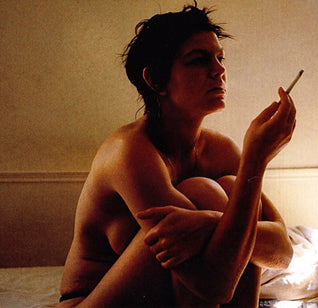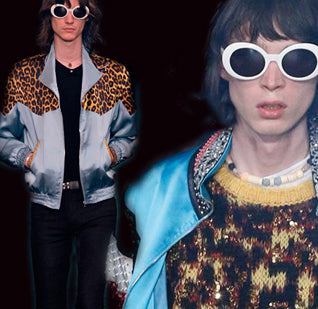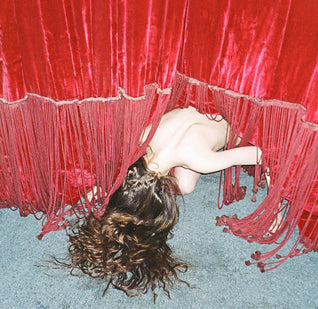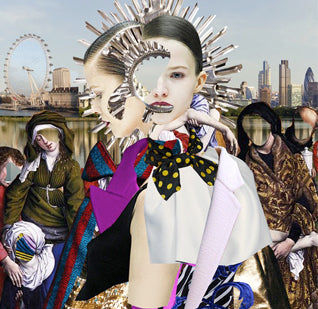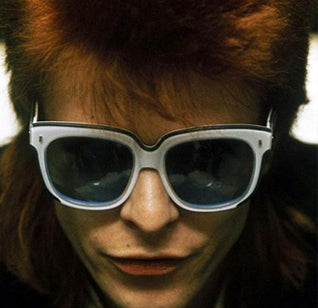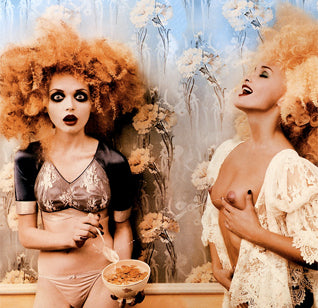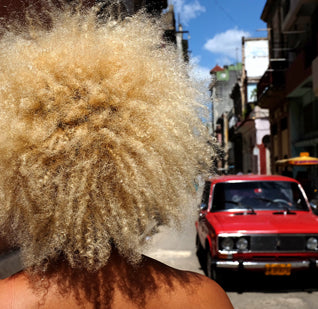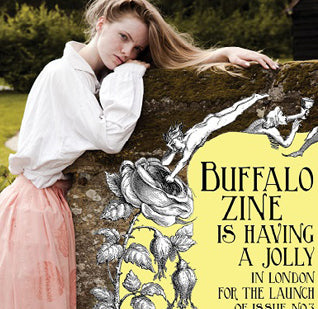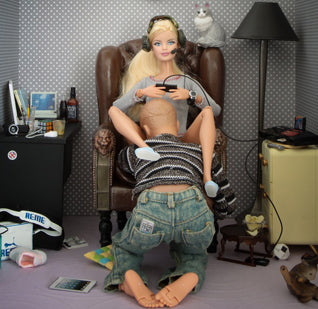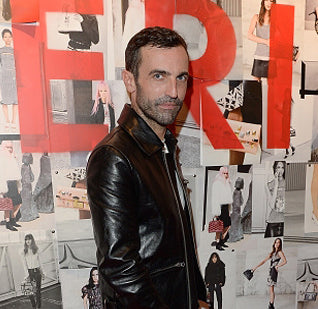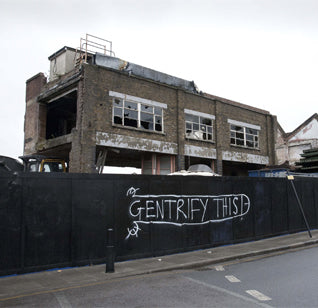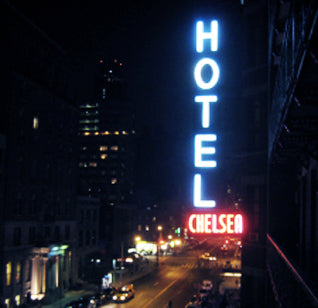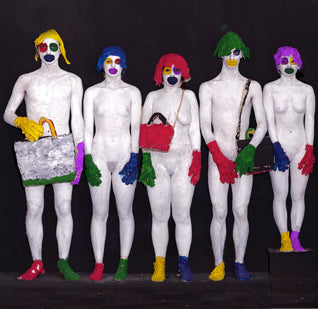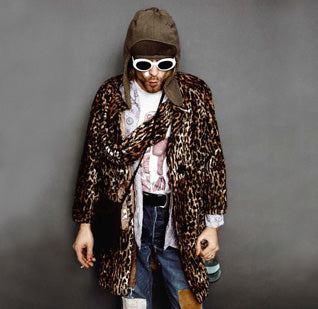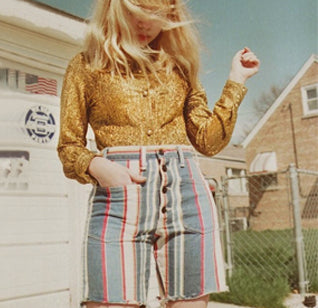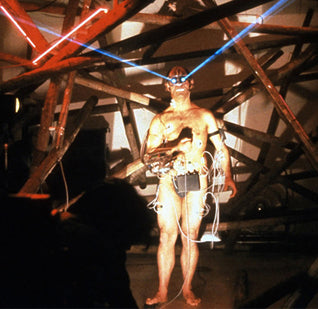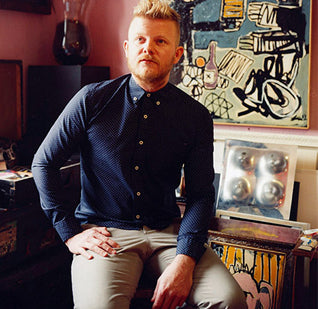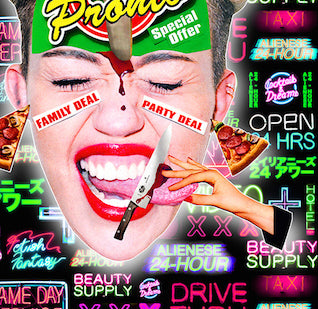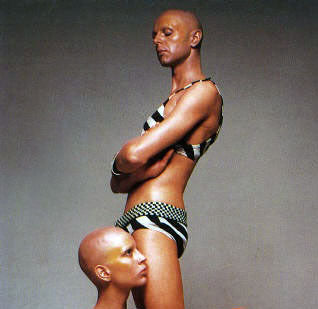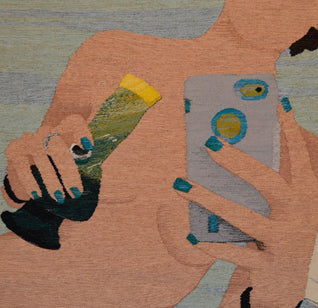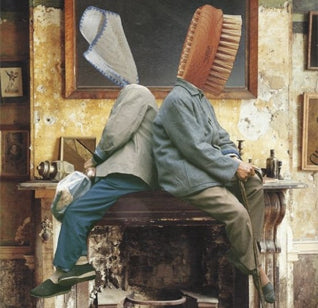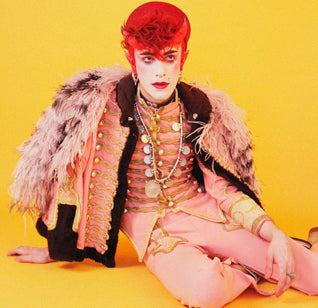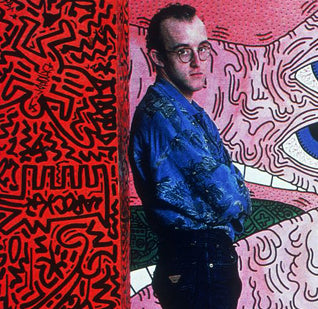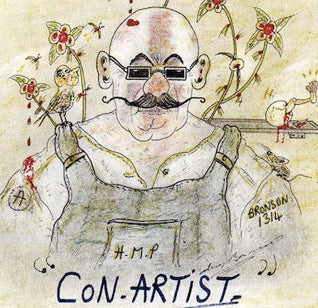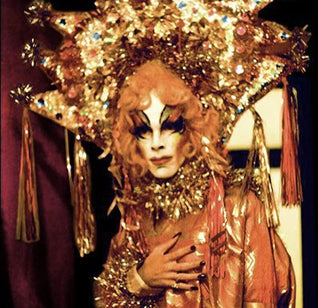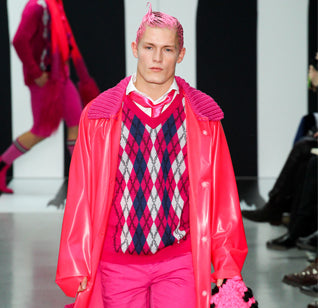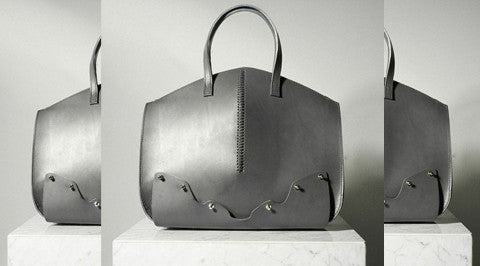Andrew Logan’s Alternative Miss World
Where world peace meets striptease
by Freddie Machin
For over four decades the Alternative Miss World pageant has celebrated London’s booming counterculture live on stage. Contrary to its namesake’s agenda of conventional beauty and gender norms, AMW rejoices in the raucous and the fabulous, over the years highlighting the creations of Leigh Bowery and Stephen Jones. Creator Andrew Logan describes his part-burlesque, part-drag catwalk show as ‘a huge sculpture’ which Brian Eno reckons should win the Turner Prize. Judged on their daywear, swimwear and eveningwear previous winners have included Miss Rosa Bosom and Miss National Geographic whose final ensemble saw her dressed as a volcano. Reigning champion and London’s Next Top Tranny 2010, Miss Fancy Chance is on the judging panel this year alongside Grayson Perry, Zandra Rhodes and Ruby Wax. Kids of Dada spoke to Andrew and Fancy about how far alternative culture has come since AMW began.

Alternative Miss World by Robyn Beeche
KOD: Andrew, you’re moving out of London at the end of the year, will this be the last ever Alternative Miss World (AMW)?
Andrew Logan: Who knows. We’ve negotiated Japan, India, America over the years but its always ended up back in London. There’s a slight problem here though, because it’s such a small theatre they can only have two contestants in the dressing room.
Miss Fancy Chance: Oh God! Where are you gonna put them?
AL: In the audience…
MFC: Oh God! Where are their props gonna go?
AL: I’ve no idea.
MFC howls with laughter
AL: So its kind of wonderful really because its kind of how it all began. The first ones were in my studio, and there wasn’t a dressing room, everyone just kind of dressed up and went up and down the catwalk. There was no difference between the audience and the stage, it was all just one big huge mess. So I’m hoping that we’ll get back to that again.

Andrew Logan at Alternative Miss World 1978, by Robyn Beeche
KOD: The early years of AMW were in the East End of London – which was a dangerous place in the seventies, you must have been very brave to throw a party like that...
AL: No. I would never even consider any of that, I just decide I’m going to do an event and just get on and do it. So whatever happens around it I just keep going. It was lovely being in here in the 70s, because we had the swinging sixties in London and then everyone went to New York in the 70s, you know Andy Warhol and the Factory, it was fabulous. Everyone ignored London so we just had a ball.


Kinky Gerlinky Cabareet at Alternative Miss World 1991, Islington, by Robyn Beeche
KOD: At some point the AMW moved to Brixton.
AL: Brixton Academy was ‘85 and ‘86. In1985 it was supposed to be in Chiselhurst caves but they banned it. We approached the Academy, which at the time was owned by Simon Parkes a farmer. The people at the Academy were so nice. Simon was a marvellous guy to work with; he only had one arm and came down from his farm in Yorkshire to run this club, called the Brixton Academy, with rock bands and everything. So he very kindly said oh yeah, it’s free that night and it was literally two days we had to arrange the whole event.

Stephen Jones at Alternative Miss World 1981, Olympia, by Robyn Beeche
KOD: Why did Chiselhurst cancel so late?
AL: They thought we were all going to bring AIDS to their home. They thought we were going to go to the toilet, and then somehow have AIDS pop up into their houses.
MFC: (Ironically) Because AIDS does that, gay people do that.
AL: I mean Butlers Wharf was worse… that was ’75 and for most people they were terrified, because there was nobody down Tower Bridge and it was all Dickensian. The ships had left, there wasn’t loft apartments or anything, we were the first – no, my brother and Derek Jarman were the first, they were in Bankside. They got the first lofts.

Grayson Perry at Alternative Miss World 1986, Brixton, by Robyn Beeche
KOD: Derek Jarman was initiating of a huge pro-gay movement at that time. Did you feel a part of it too?
AL: Derek was. I always thought it was rather funny, because I’m so apolitical and he was so up front. At one stage, people would say, ‘was it a social thing on gender and everything?’ well actually no, it was just about having a good time. And then people interpret lots of things into it after but really it was about all getting together.
KOD: Miss Fancy Chance, you’ve said there aren’t enough women on stage, is that the frontier now?
MFC: I just don’t think that women have ever been encouraged to be on stage, like really encouraged to show off, to be funny – they’re encouraged to be in Miss World and be beautiful and presentable, and as long as there is gender inequality its probably gonna be onstage as well. I mean you’d be really hard pressed to see a comedy line up that’s 50% women and 50% percent men.

Andrew Logan & Rula Lenska Alternative Miss World 1991 by Robyn Beeche
Has it got better in the time you’ve been performing?
MFC: I mean burlesque has put a lot of women on stage and it’s so big now. In the beginning of neo-burlesque, they got all sorts of women doing crazy DIY stuff, getting their boobs out and fat and small and big and tall and really it was quite punk rock actually. And also everyone was crafting their own outfits. It was a great thing for female performers – it really encouraged people to have fun. It encouraged people to create and to transform.
Do you think that as it gets bigger it will become homogenised?
MFC: It is going to be homogenised in some circles but there’s still going to be other little shows that are just as weird and wacky as it was, you know, I mean its like with anything popular – there’s gonna be a lot people doing the same thing but then the weirdos on the edges who are kind of pushing the envelope or just doing the only thing they know how to do, which is being strange and funny.

